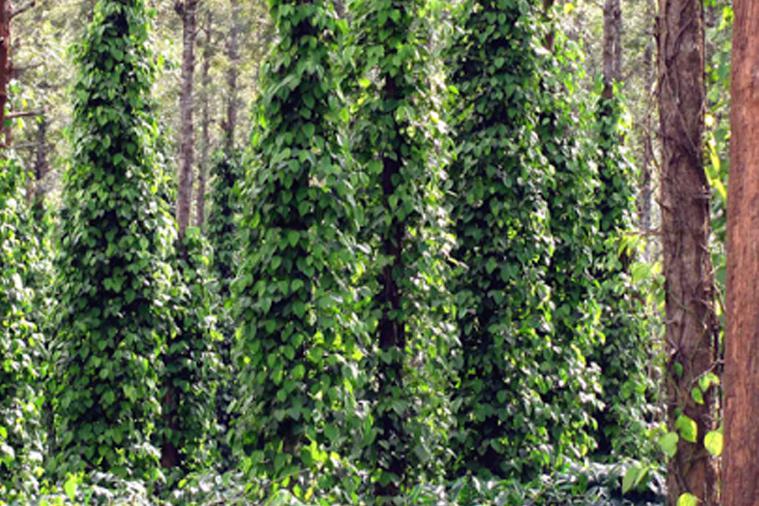Cheryl D. Nath
The project will assess farmers’ interest in utilising fallow lands for growing native timber species. It also will explore ways in which Government agencies could support the program to ensure sustainability.
It is well-recognised that efforts by the Government and conservation NGOs have been insufficient to reduce many existing threats to biodiversity. The need to broaden the conservation platform and include the stakes of local communities is now apparent. A larger proportion of human society needs to be involved in promoting biodiversity conservation, and the involvement of farmers, who manage a large proportion of the land surface in biodiversity-rich areas such as the Western Ghats, could be critical.

a modern, intensively managed coffee plantation dominated by straightstemmed exotic Grevillea robusta that can be planted at higher densities than sinuous-stemmed native trees and also support climbing pepper vines, an additional source of income.
Also, due to the effects of climate change species’ distribution ranges could shift in coming years, resulting in some species surviving better outside the existing protected area network. The commonly practiced solutions to some of these problems include notification of additional areas for protected status or restriction of local people’s land and resource use rights.
However, conservation policies that are opposed to local people’s interests generally require coercive implementation and could produce undesirable complications. Thus, in order to equitably and sustainably promote endangered species’ survival across the landscape, novel schemes and incentives along with the appropriate policy framework, need to be developed to enable larger numbers of private individuals to voluntarily promote biodiversity conservation.
With this objective, my project will explore an alternative approach of encouraging farmers to voluntarily promote biodiversity conservation by providing them with direct benefits. It takes forward a 4-year effort of working with Western Ghats coffee farmers, during which I learned that farmers regularly plant large numbers of quick-yielding timber species to diversify incomes and make farms economically resilient. However, as the existing tenure restrictions “protect” native trees from being harvested, farmers strongly favour exotic species for planting. My studies of growth rates showed that at least one native species had the potential to grow as fast as the most popular exotic species. This native species potentially could be promoted, among others, as an alternative to the exotics. The feasibility of promoting such conservation-friendly practices among farmers will be evaluated through field studies, interviews and interactions with stakeholders.